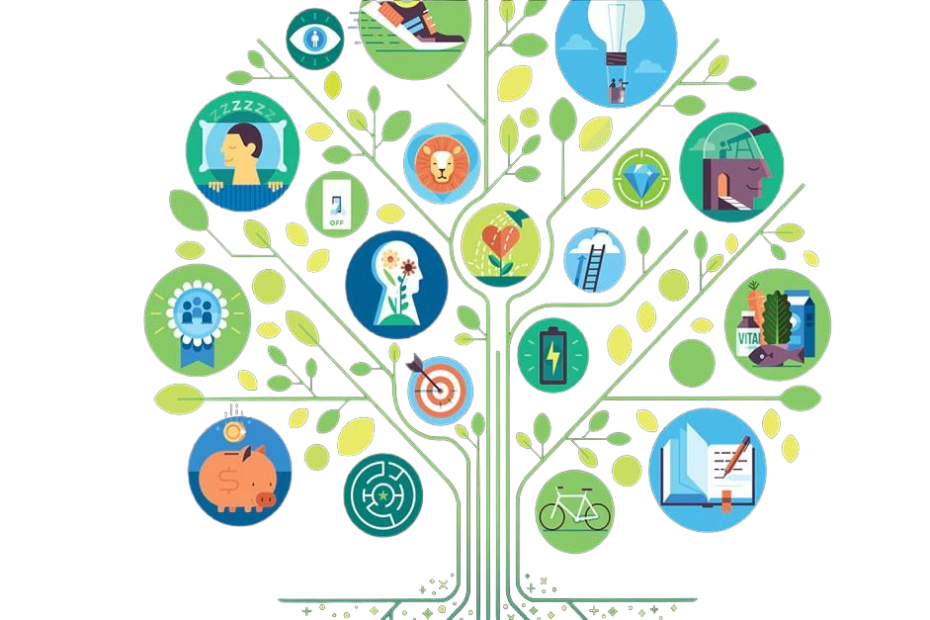I am glad to break the silence on the Conscious Being by ME page with a post about what well-being is. Before we get started, please take a moment to reflect on how you understand well-being and what it means to you.
The World Health Organization (WHO) defines well-being as “a state of complete physical, mental, and social well-being and not merely the absence of disease or infirmity”. In other words, it is the state of being well in all aspects of life. However, everyone’s definition of well-being is unique. What makes one person feel well may not be the same for another. The most important thing here is understanding what makes you feel well.
As I embarked on my journey to identify the main ingredients of well-being, I explored many theories and tried several approaches. Well-being appeared to be a broad term which includes many aspects — I saw as many as 30. After distilling the gathered information, I came up with a framework that comprises eight aspects: physical, mental, career, social, financial, environment, intellectual, and spiritual. I chose this set of aspects because it is a perfect amount to split well-being into understandable yet easy-to-digest components; it covers all peculiarities; it works well for guiding individuals and evaluating workplaces; and it is not much to memorise.
To briefly describe aspects, physical well-being encompasses taking care of our bodies through proper nutrition, exercise, and sleep. Mental well-being relates to our emotions, how we cope with stress, and relaxation techniques. Career well-being is related to our work and career development, including whether we feel valued for our contributions. Social well-being involves forming bonds and relationships with peers and colleagues. Financial well-being is about how we manage our finances and wealth. Environmental well-being inspires a respectful lifestyle towards our surroundings, promoting interactions with nature and personal surroundings. Intellectual well-being encourages us to engage in creative and mentally stimulating activities. Last but not least, spiritual well-being allows us to develop a set of values helping us seek meaning and purpose in life and what we do.
It’s worth noting that these aspects are interconnected and overlapping. If one aspect suffers, it may impact others and, thus, our overall well-being. For example, several sleepless nights may impact not only physical well-being but also affects mood, increases stress, reduces work performance, impacts our ability to approach complex tasks and take on new challenges, and potentially makes us buy snacks or energy drinks to restore energy levels. As a result, mental, career, intellectual, and financial aspects may be negatively affected. Then it is a short road to undermine other aspects.
Measuring individual well-being and well-being in the workplace is possible through methods such as personal surveys, company surveys, interviews, observation sessions, workshops, and training. However, it depends solely on the person’s willingness to share their experiences and thoughts honestly. To evaluate well-being effectively, we must be open and honest when filling in surveys, talking in interviews, and so on. This way, researchers can assess the situation, identify problems, and work together to find solutions.
I hope it will give you some knowledge about well-being. In future posts, I will share more insights about everything, for example, aspects in more detail and how you can improve them in the workplace. Want to know more? Feel free to comment or send a message.
Be well!
